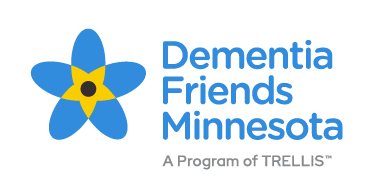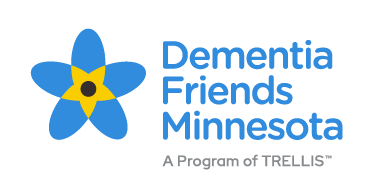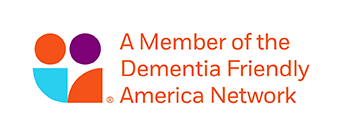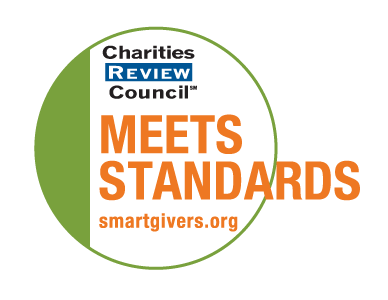Dementia Friends Interview: Teresa McCarthy and Teresa Schicker
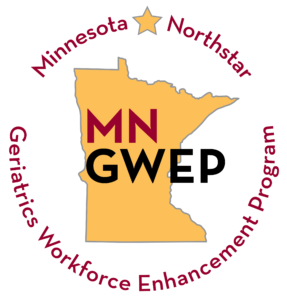
To celebrate the tenth anniversary of Dementia Friends Minnesota, every month we will be featuring Friends who have taken the work to new heights. This month, we spoke to Teresa McCarthy MD, CMD, and Teresa M. Schicker, MPA, about their work with the Minnesota Northstar Geriatrics Workforce Enhancement Program (MNGWEP).
Tell us about how GWEP works with the Dementia Friends program.
Teresa Schicker: At the University of Minnesota, we have been implementing Dementia Friends information sessions and Champion trainings for a number of years under the leadership of Dr. McCarthy. We offer information sessions in classes, and we also offer opportunities for information sessions within interprofessional groups of students.
Doctors McCarthy, Ratner, and Rosenstein offer Dementia Friends with medical students, residents and some fellows. Dr. Brian Isetts and a group of students brought Dementia Friends into assisted living sites for caregivers and staff. In addition, we've collaboratively expanded some of the Dementia Friends content to offer information sessions with Dementia Friendly @ Work for Healthcare under the leadership of Dr. Steve Shuman in collaboration with Act on Alzheimer’s. That content and Dementia Friendly Dental Practices is offered to clinical groups and practicing dental professionals and dental teams.
Dementia Friends is a “train-the-trainer” model that builds capacity and leadership skills in the Champions, and that has absolutely been the case with the learners that have become involved. It fits exactly within our goals as a Geriatrics Workforce Enhancement Program. There are a few really special health science students who took this on as a challenge and passion of theirs to offer Dementia Friends information sessions. Dementia Champion training has expanded the network to geriatric expert faculty, who also lead sessions. Dementia Champion students advanced their academic success with publications and conference presentations that came out of this leadership building activity.
What is the benefit of Dementia Friends in an academic setting?
Dr. McCarthy: I am an associate professor in the medical school at the University of Minnesota and part of the interprofessional GWEP under which this program has been supported for five years. I look at it from a clinician-educator perspective and see Dementia Friends as a potent empathizing process for students and residents. We encountered the idea that this session isn’t medical education, and I have pushed back consistently that I think it remains relevant.
Dementia Friends information sessions provide an opportunity to sit back and think about what it feels like to interact or even to be a person with cognitive impairment, which, unless you come to your program with that experience or that exposure, students might not understand. In order to be a good clinician and help support patients, whether it's in diagnosis or treatment or management, you need to have a little bit of understanding of what it's like to be in that situation. That's why I'm a firm believer that anybody can benefit from Dementia Friends. Even students who actually do have exposure to people with dementia, maybe through their grandparents, have recognized that perhaps they missed opportunities or hadn't thought about it in this way for their loved one.
Teresa Schicker: I am proud that this team has offered Dementia Friends and dementia friendly content to learners from many professional schools and departments, including the following:
- Dentistry
- Education and Human Development
- Medical Residents
- Medical Students
- Mortuary Science
- Nursing
- Pharmacy
- Physical Therapy
- Public Health
- Veterinary Medicine
We've listened to various professional students. Two, I'll point out, are veterinary medicine and mortuary science, both are whom are part of health sciences at the University of Minnesota. The students in both programs responded to Dementia Friends with gratitude and surprise at how relevant the information is for them professionally. They shared that the Dementia Friends content expanded their existing conversations about ethical questions in their professions, and I think that's a powerful thing to consider. Medical students and advanced practice nursing students have their perspectives based on the considerable knowledge they already have about brain science and the cognitive changes happening with folks with ADRD, while others like physical therapy, public health, veterinary medicine, and mortuary science have their own unique perspectives on this content.
What advice do you have for those doing Dementia Friends in a similar setting?
Dr. McCarthy: Recognize that it is not traditional standard academic content. You'll have to stand your ground that it is beneficial because we know that the education time is so precious and you have to be ready to defend it with data. We gather data with the Dementia Attitudes Scale. I would also encourage anybody that does this kind of intervention, especially in an academic health center, to study it. Get some answers to some questions. Try to move the field forward.
Why should health science students know a little bit about dementia?
Dr. McCarthy: Aging is inevitable. If we're lucky, we get to an age where there's potential for cognitive impairment. We're lucky if our parents get to the age where there's potential for cognitive impairment. We know statistically that a large proportion of older people are going to have cognitive impairment and dementia-related illnesses. By having some fundamental understanding, not only of the pathophysiology but of the life-altering and relationship-altering issues that can arise, we can improve our quality of life and we can improve the quality of life for the people with cognitive impairment. Compared to so many other things, Dementia Friends is not that hard and not that expensive. There are so many things we can’t do anything about, and this is something quite actionable.
Teresa Schicker: Dementia Friends is about empathy building. In my role as part of a Geriatrics Workforce Enhancement Program, we have included Dementia Friends in our programming because it has potential for various students and professionals to have exposure. That will hopefully improve the care of older adults as we all age in the state of Minnesota, and as we all are connected with folks who may really benefit from living in dementia-friendly, empathetic communities.
Dr. McCarthy: That's a really good point. People who don't understand things, including students, are afraid. If you can normalize some of this a little bit, then a student may say, “Maybe I'll take that elective to become a certified nursing assistant while I’m in school,” or something. And that can be world changing.
